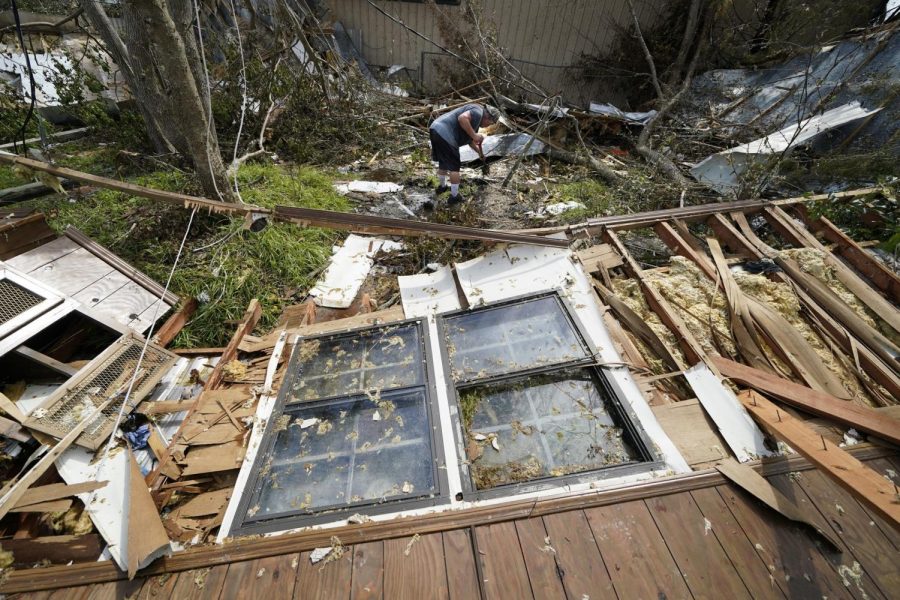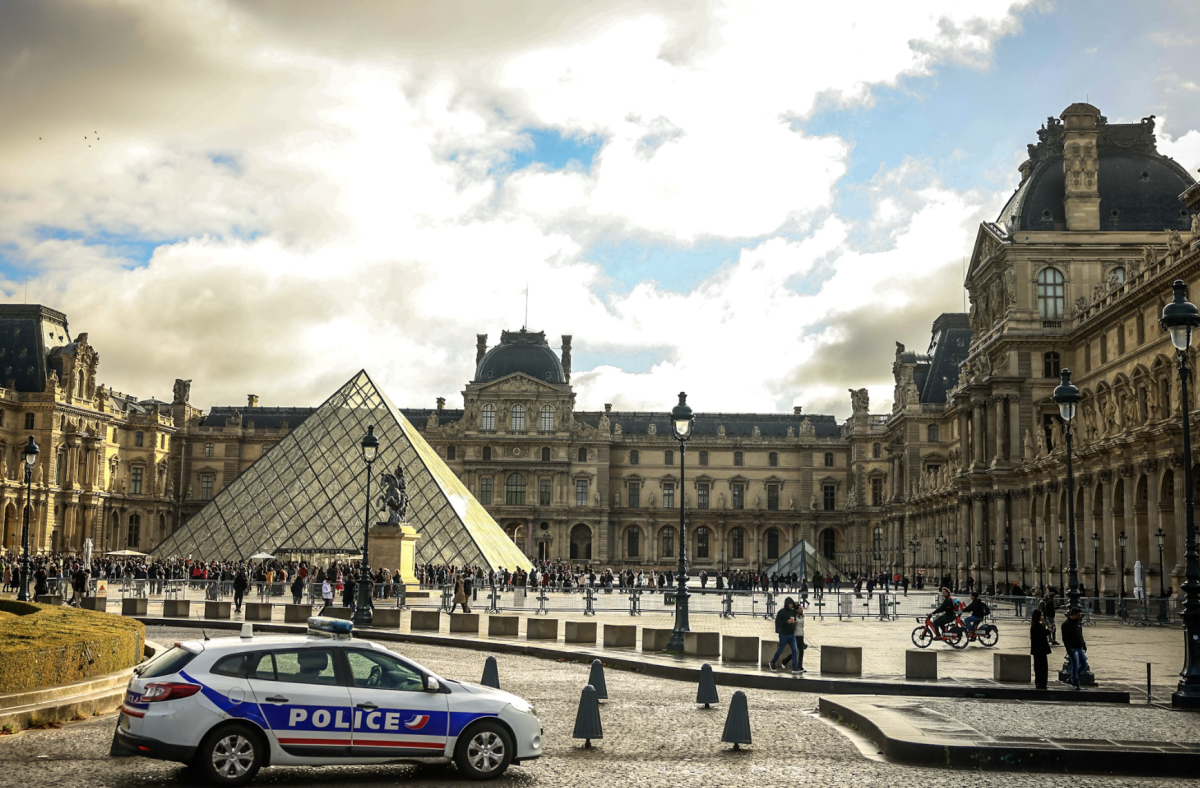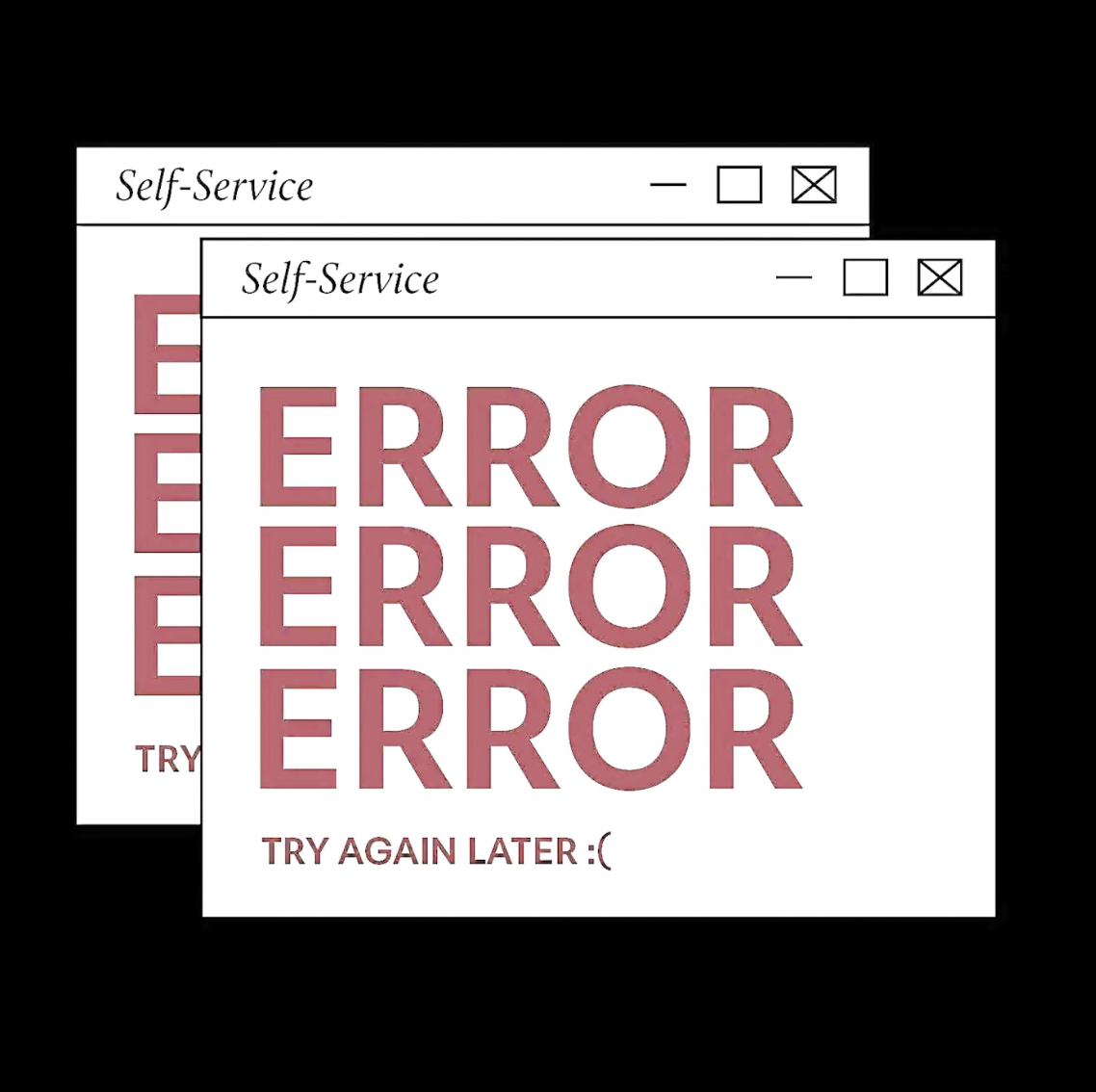I’ll always remember Aug. 27. I had stayed up late watching Hurricane Laura’s projected path move over my hometown of Lake Charles. My parents hadn’t been able to evacuate and my first instinct was to call and make sure they survived. No one answered. I didn’t know what was going on, so I turned on the news.
I watched live streams of the damage from ABC News and The Washington Post. My daily NPR podcast was filled with information. I obsessively checked Twitter where the hashtags #HurricaneLaura2020 and #LakeCharles were trending. All the information coming in was scary, but it was less scary than the uncertainty I had a few moments ago.
No one will remember Aug. 28. It had only been 24 hours, but NPR already had other things to talk about that morning. CNN and MSNBC reserved their breaking news for other stories. New topics were trending on Twitter. The world had a lot going on.
When my parents finally got in contact with me I learned there was no power or running water in Lake Charles. They were burning to death in our house and trapped in the neighborhood by trees and rubble. “The city is gone,” they kept telling me over the phone, “It’s like a bomb dropped on it.”
That hadn’t been in the New York Times.
I scrolled through social media to prove to myself that people were talking about this even if conventional news wasn’t. Yet, the few posts I saw were as confused and frustrated by the silence as I was.
I complained but, as the days passed, I moved on too. Without the awareness and accountability that constant news coverage brings, it was as if the tragedy was already over. I got caught up in the news cycle that carries us all from crisis to crisis.
That’s why when I received a phone call more than two weeks later that the roof of my house had taken too much damage and completely collapsed in, I was shocked. Hurricane Laura’s destruction lingered. My social media feed had long reverted back to its normal state of memes and influencer drama, but it wasn’t over for me.
The lack of attention felt personal now and I knew I wasn’t alone in this feeling, so I visited the Fairfield Inn and Suites Marriott in downtown New Orleans where I spoke to 28 Lake Charles evacuees currently being sheltered there. I wanted to know how they felt about the media coverage of Lake Charles. 64% of the participants didn’t think there was enough media coverage, and 75% felt that the coverage that was there downplayed the amount of damage done to the city. 53% of the refugees believed that social media didn’t do enough to raise awareness. Those who answered ‘Yes’ cited Facebook as their main social media platform, where they joined specific groups for people affected by Hurricane Laura, rather than broader platforms like Instagram and Twitter. When asked if they’d be able to go back home, 82% said ‘No.’
Scott Baker, a 63-year-old man, answered with tears in his eyes, “What home?”
The situation reminded me of Katrina. Google search trends show that Hurricane Katrina rose in popularity after its landfall on Aug. 25, 2005, and had no significant drop until Sept. 6, when its popularity drops just below 50%. Hurricane Laura shows peak popularity on Aug. 27, 2020 when it made landfall on the gulf coast and the very next day it drops below 25%.
Hurricane Laura was as strong as Katrina, so why didn’t the numbers reflect that? I was hoping these evacuees could help me understand.
“There wasn’t water,” said Patricia Williams, a veteran who evacuated with her two dogs. “…If they don’t see that then they don’t think it was bad.”
William Hyatt, who had been in the hospital recovering from gall bladder surgery when Laura hit, had a different explanation. “There’s only one New Orleans. It’s an icon. Lake Charles…Lake Charles is a nobody.”
Still, one opinion resonated with me the most. “The country is in crisis. COVID-19, unemployment, wildfires, police shootings. I think the country has a heavy burden already..,” said Veronica Thibodeaux, who had just arrived from a shelter in Alexandria.
She was right. The last few years have been a highlight reel of tragedies. But with 82% of the evacuees I interviewed saying they may never be able to go home, this wasn’t acceptable. The media had a responsibility to help us press pause. To not just report on what people currently care about, but to inform people about what they should care about and why. In this, they failed.
Still, it’s unfair to completely blame an entity as vague as “the media.” In this age of social media, we have all the tools we need to inform ourselves and to spread the news to others. The power of the media is in the palm of our hands. So why haven’t we used it? Maybe we’re all too exhausted to focus on a single issue. Or maybe we’re just addicted to getting angry and unwilling to do much else. Either one is an excuse. An excuse to consume a story, complain, and move to the next one. In a news cycle dominated by shock value and cancel culture perhaps no one should be surprised that even a hurricane only gets fifteen minutes of fame.
Figure 1: Graph of Hurricane Katrina’s search popularity on Google from August 25, 2005, to September 23, 2005.
Figure 2: Graph of Hurricane Laura’s search popularity on Google from August 26, 2020, to September 15, 2020.













